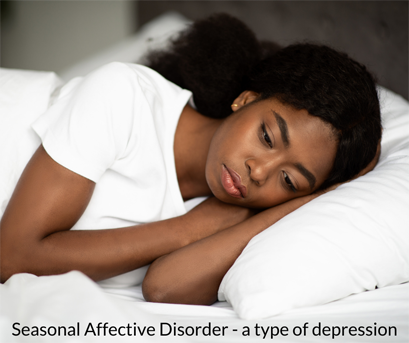Feeling SAD?
February 11, 2022
This time of year for Minnesotans can be tough. The days are cold, and short on sunlight, keeping people inside more than usual. Many people may go through short periods where they feel sad or not like themselves. In some cases, these mood changes are more serious and can affect how a person feels, thinks, and handles daily activities. Sometimes, these mood changes begin and end when the seasons change. People may start to feel “down” when the days get shorter in the fall and winter, and begin to feel better in the spring, with longer daylight hours. If you have noticed significant changes in your mood and behavior whenever the seasons change, you may be suffering from seasonal affective disorder (SAD).
Seasonal affective disorder is a type of depression characterized by its recurrent seasonal pattern, with symptoms typically lasting four to five months per year. Symptoms of SAD include those associated with major depression and more specifically to SAD: oversleeping, overeating (craving carbohydrates), weight gain, and social withdrawal. There is also a summer-pattern SAD that presents in the spring and summer but this form of SAD is far less common, and has a few different symptoms.
Seasonal affective disorder affects around ten million Americans each year. SAD occurs more often in women than in men, and is more common in people living far from the equator where there are fewer daylight hours in the winter. SAD sometimes runs in families, and tends to present in young adulthood. SAD is more common in people who have relatives with other mental illnesses, such as major depression or schizophrenia.
There are steps you can take to help ease or prevent seasonal affective disorder at home such as: getting regular exercise; getting outside even if it’s just for a few minutes a day; maximizing the sunlight in your home by opening blinds and trimming tree branches blocking windows; and normalizing your sleep pattern.
Treatments that may be suggested by a medical provider include: light therapy, psychotherapy, antidepressant medications, and a vitamin D supplement.
If you think you may be suffering from SAD, talk to your medical provider or a mental health specialist about your concerns.
